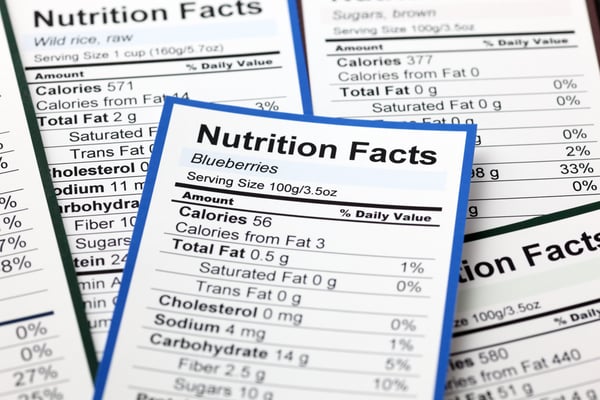Bringing products to market to meet the growing demands of consumers is getting increasingly complex. The demand for additive-free, non-GMO, low calorie, and fresh products is not just a fad. Conscientious consumers focus on health, wellness, and social issues as they shop for family meals. They will take into consideration clean labels, visibility into suppliers, humane treatment of animals, and environmental sustainability.
This is adding to the burden on food and beverage companies as they struggle to comply with vague definitions and evolving standards for compliance. Today’s clean label movement is an example of consumer demand for informative labels and products free of added chemicals, colors, and unnecessary ingredients. While food and beverage companies may want to seize the opportunity to appeal to a market that has spending power, the task isn’t easy. Definitions evolve, as do expectations.

Meeting regulatory needs and compliance
While food and beverage companies rely on labels to attract consumers, the labels and packaging also play a critical role in meeting FDA mandates. Charged with the overall objective to protect consumers, the agency’s regulations around food manufacturing fall into two categories: food safety and labeling.
Although efforts around these categories share similar goals, regulations around food safety are specifically designed to prevent the manufacturing of contaminated foods. Labeling is all about helping consumers make informed decisions, while also preventing consumption of ingredients that could be personally harmful, such as allergens.
Keeping up with legislation in all markets where products are sold can present a daunting challenge for food and beverage companies —especially when what is current and correct today may be completely different tomorrow. An example of a recently updated regulation that affects all businesses that sell products to Californians is the update to Prop 65 that came into effect on August 30, 2018.
Prop 65 requires businesses to notify Californians about significant amounts of chemicals known to cause cancer or birth defects or other reproductive harm in the products they purchase. The update has to do with how warning labels are displayed, including graphic design and wording, on product labels for food, including dietary supplements. Failure to comply can result in severe economic fines.
To successfully comply with all regulations, you need to consistently deliver compliant, clear, compelling labels—despite changes in regulations and consumer tastes. You can do that with Infor Optiva® a product lifecycle management solution that consolidates all product related information, such as suppliers, raw materials, ingredients, and formulas into a single, accurate database. With this data directly linked to a labeling module, all relevant information can be automatically and accurately reflected. As regulations are monitored, everything from rules and exemptions to content and placement can be seamlessly incorporated into the database.
Contact ICCG to learn more about how Infor Optiva can help you achieve compliance with regulatory agencies worldwide, such as for labeling and nutritional declarations for food, chemicals, and other CPG products.

